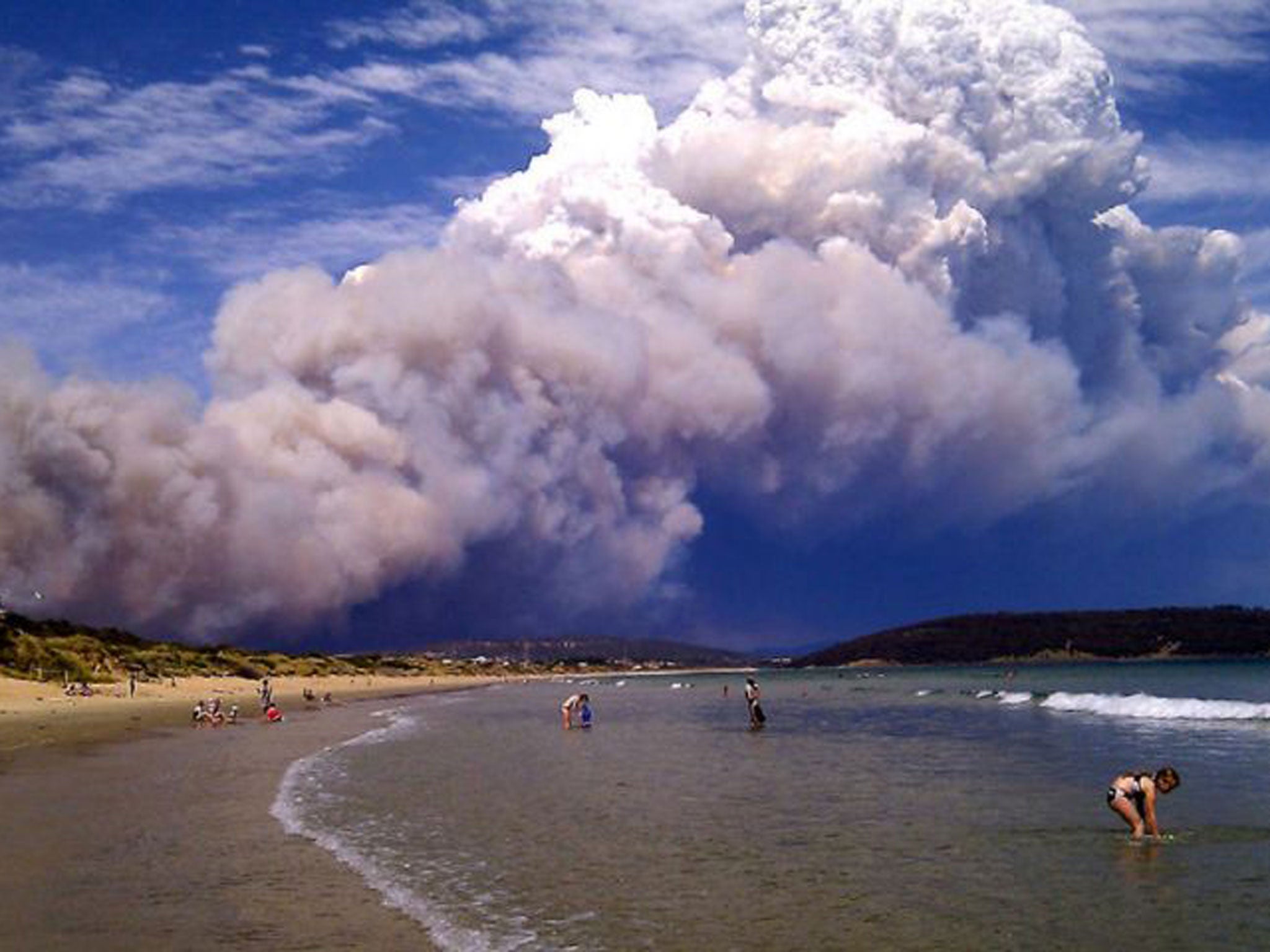'Like summer on steroids': Australia’s hottest ever year blamed on climate change, with 'really frightening' temperatures in store

A climate “on steroids” was to blame for a summer of record-breaking heatwaves, severe bushfires, cyclones and floods, according to Australia’s leading climate change scientists.
A report by the Climate Commission, an independent body set up by the government, says the extreme weather experienced across the continent was exacerbated by climate change and predicts it will become the norm in years to come. Its author, Will Steffen, warned that some “really frightening” temperatures were in store over the next two decades.
The report, released today, is entitled “Angry Summer” – an apt description of a season during which 123 records were broken. It was Australia’s hottest summer ever, both in terms of nationwide average temperatures and of maximums reached at individual sites. Heatwaves of record intensity and duration fuelled bushfires that raged in every state and territory.
Rainfall and flood records were also smashed, with tornadoes and tropical cyclones aggravating the meteorological havoc. “What this is telling us is that climate change is not some hypothetical thing that will occur in the future,” said Prof Steffen. “The climate has actually changed … We have a climate on steroids.”
While scientists are usually reluctant to attribute specific weather events to climate change, Professor Steffen said the climate – now wetter and warmer than 50 years ago – had influenced the nature, impact and intensity of the extreme weather seen during “a very, very unusual summer”.
Among the new records set were the hottest day for the country as a whole (40.3C on 7 January); the hottest stretch nationally (seven days in a row above 39C); and the hottest month ever (January). Temperatures – which reached 49C at some locations – remained sweltering after sundown, with 29 places recording their highest ever night-time minimums.
While July to December last year was one of the driest periods on record, parts of eastern Australia experienced rainfall of more than 400mm a day during late summer. Five swollen rivers reached their highest points ever, flooding towns and cities in northern New South Wales and southern Queensland.
Australia has always been a place of harsh, extreme weather – “a sunburnt country… a land…. of drought and flooding rains”, as one of the nation’s best-loved poets, Dorothy Mackellar, put it. Disasters such as Cyclone Tracy, which flattened Darwin in 1974, and the Black Friday bushfires of 1939, which killed 71 people, are etched into the national memory.
However, the changing climate is increasing the frequency and intensity of extreme weather events, according to scientists, who warn that such events will become more common around the world.
“We’re seeing the actual costs now of inaction, of global inaction, to deal with this problem,” Australia’s chief Climate Commissioner, Tim Flannery, told ABC radio. He added: “It’s been a summer of extremes. It’s been a very angry summer.”
Professor Steffen said: “We’ve been storing extra heat in this system for about a century now, due to increasing greenhouse gases. When we do the sums, for the next couple of decades you’re going to see increasing likelihood of very hot weather and more record hot weather.”
Join our commenting forum
Join thought-provoking conversations, follow other Independent readers and see their replies
Comments